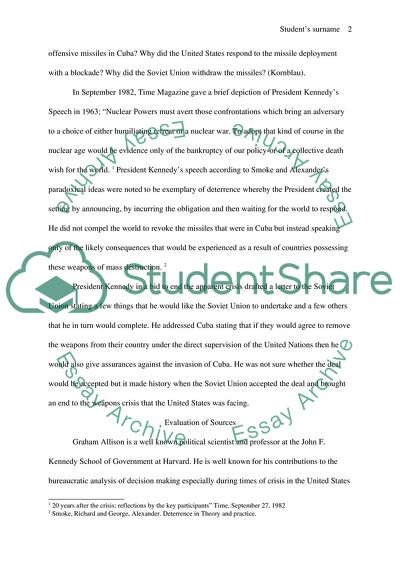Cite this document
(Kennedys Strategic Ability in Preventing the Cuban Nuclear War Coursework, n.d.)
Kennedys Strategic Ability in Preventing the Cuban Nuclear War Coursework. https://studentshare.org/history/1747147-modern-history-ib-internal-assessment
Kennedys Strategic Ability in Preventing the Cuban Nuclear War Coursework. https://studentshare.org/history/1747147-modern-history-ib-internal-assessment
(Kennedys Strategic Ability in Preventing the Cuban Nuclear War Coursework)
Kennedys Strategic Ability in Preventing the Cuban Nuclear War Coursework. https://studentshare.org/history/1747147-modern-history-ib-internal-assessment.
Kennedys Strategic Ability in Preventing the Cuban Nuclear War Coursework. https://studentshare.org/history/1747147-modern-history-ib-internal-assessment.
“Kennedys Strategic Ability in Preventing the Cuban Nuclear War Coursework”. https://studentshare.org/history/1747147-modern-history-ib-internal-assessment.


